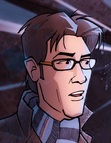Tim Flanagan's Blog, page 25
June 8, 2013
Co-operative Author Promotion Event
 I am organizing a Group Promotional two day event for authors to cross promote their books to fans and readers of other authors. This is a great way for readers to find new and exciting authors like you, in the genres they already enjoy.
I am organizing a Group Promotional two day event for authors to cross promote their books to fans and readers of other authors. This is a great way for readers to find new and exciting authors like you, in the genres they already enjoy.
When :
Saturday 13 and Sunday 14 July 2013
Genre :
Science Fiction and Fantasy Kindle books that are available on Amazon
Where :
On this blog
What you gain :
Access to other authors fans and readers. Increased sales and a higher Amazon ranking. Achieving higher Amazon rankings in your chosen categories will increase visibility of your book to others people searching on Amazon, even after the event has ended.
What does it cost :
Absolutely nothing!
The only thing you need to do is set your Amazon Kindle book price to 99c in the US and 75p in the UK. If your book is not set at this price for the duration of the two day event, they will be removed.
How does it work :
I will collect authors who are interested in participating and build the Event page. I will also create the text and images that each participating author can then use to inform their readers on Facebook, Twitter, their blog, and their mailing list, inviting readers to grab a bargain! The more exposure each author generates helps to benefit everyone. After the event, each author will receive a brief report on the number of viewers of the event, as well as the number of clicks through from their books to Amazon, as well as how many sales were actually generated from those clicks. Of course, when the event has finished you can change your book back to its original price.
Who can participate in this event :
Anyone who has a book in the genre of this event and can easily change the price of their books.
Indie authors will be able to adjust the price of their book in the KDP dashboard, selecting 35% royalty option and changing the prices. However, traditionally published authors may not find it so easy to change their prices themselves and may have to go through their publishing houses who may refuse your request. If you cannot set your price to 99c / 75p you cannot participate.
What if you don’t write in this genre :
Don’t worry. Other themed promotional events will follow.
How do I take part?
Just complete the form below
[contact-form]


June 5, 2013
Author Interview – Ben Hale : Part 2
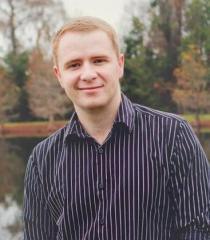 Within the Indie Author Hub, you can learn about other authors, their thoughts and opinions, what makes them tick and how their writing process works for them.
Within the Indie Author Hub, you can learn about other authors, their thoughts and opinions, what makes them tick and how their writing process works for them.
All this week I will be releasing segments of an interview I conducted with fellow author, Ben Hale, author of Fantasy series, The Chronicles of Lumineia. Have a look at his profile and books here.
Part 2 : The future of publishing
What do you think the future of publishing will be? I wrote a blog post on this exact question a few weeks ago. In a nutshell I think that the only publishers that will survive the next decade will be the ones that value authors. Without the monopoly they have enjoyed for so long, some publishers will struggle because more and more authors will have no reason to go with them.
With the world of publishing evolving, publishers need to evolve with it. Right now I see publishers only placing value in the major bestsellers, such as Harry Potter or Twilight. (To a degree, they didn’t have a choice. They couldn’t invest into everyone or they would have gone bankrupt.) With the advent of e-publishing that can now change. Publishers can value more authors by offering print-only contracts, digital-only contracts, or offer a higher percentage of sales if an author wants to pay for editing or artwork themselves. Everything including the length of the contract needs to change.
A good example of this is how publishers used to plan marketing strategies. They used to gather analytics from bookstores that helped them track who was buying books and where. They still do that but many books are sold online now, and Amazon doesn’t give that information out—even to publishers. That means that the entire system that publishers used to base marketing on is now flawed. I have read an article of another author who was fortunate enough to be invited to meet with a publisher. To her surprise, the publisher’s personnel didn’t even know how blogging could grow a book’s exposure. You can find the complete story on her blog (Penelope Trunk is her name). I consider it a must read.
In essence, publishers need to become more versatile to handle the expanding opportunities that are available. They need to trim the extraneous expenses so they can operate more efficiently, and they need to put more value in mid-list and new authors. To be clear, even if they do change this way, it doesn’t excuse authors from their responsibility. Part of branding is promoting the author. That doesn’t work if the author can’t market themselves. The business of writing is more than just writing. It is marketing yourself, marketing your work, and consistently learning how to do it better. Once authors recognize their role, and publishers learn to adapt, the publishing world will finally be in balance. At least, that is my hope.
So, do you think there is a place for traditional publishers anymore? I believe there is, but only if they adapt to the changing market. As I said, if big name publishers began offering print-only contracts to successful Indie Authors, I believe many more would be willing to sign. The result would be a huge success for both publishers and writers. I don’t know a single indie author who sells well in print. (If you are, then congrats on your success!)
What about Agents, are they necessary? It depends on the writers goals. At the end of the day there is only so much an author can do before it cuts into their writing time. Marketing, editing, networking, blogging, website management, etc, all take so much time that it is difficult to focus on writing. I do think that agents will begin to evolve, and start offering more to Indie Authors who want to focus on their books. In time, some might even begin to call themselves Indie Agents, or E-Publishing agents.
Top tip for aspiring authors? Literary success requires research, diligence, and sacrifice.
Don’t miss part 1 of this interview where Ben discusses his writing process


June 3, 2013
Author Interview – Ben Hale : Part 1
 Within the Indie Author Hub, you can learn about other authors, their thoughts and opinions, what makes them tick and how their writing process works for them.
Within the Indie Author Hub, you can learn about other authors, their thoughts and opinions, what makes them tick and how their writing process works for them.
All this week I will be releasing segments of an interview I conducted with fellow author, Ben Hale, author of Fantasy series, The Chronicles of Lumineia. Have a look at his profile and books here.
Part 1 : Ben’s life as an Author
What inspired you to become an author? The idea for my series began when I was 12. At the time I would read before bed every night, and one night I created my own story. It turned out to be a relaxing way to fall asleep, so every night I added a piece to the tale. Over time it became something like a movie that I would watch in my mind. Fifteen years later my wife asked why I fell asleep so fast. As I shared it with her I was astonished to realize that the story was complete. At her encouragement I began to write. When I hit ten chapters I realized it wouldn’t fit in a single novel, and the Chronicles of Lumineia were born.
What did you read as a 12 year old? I read a variety of books, including fantasy. The Sword of Shannara was one of my favorites. Oddly, my favorite author is a little known writer by the name of Gordon Korman. Many of his older books were out of print even then, but I managed to get a small collection together. I still laugh when I read his work. Funniest stuff I’ve ever read.
If you couldn’t be an author, what would you be? A snowboarder.
Do you write full time? I do now. With the growth of my series I decided to sell my previous businesses and make the transition. It was one of the best decisions I ever made. In college I started an irrigation contracting business, and by the time I graduated it was flourishing. Later I added a vending machine business. I’ve never been afraid of getting my hands dirty or working hard, but I must admit that writing is better than digging ditches.
Where do you write? At home. I prefer desktop computers over laptops, so my favorite writing place is really my only writing place. I have a small office at home that I do nearly all of my writing. However, my favorite place to outline is the bookstore. I love the smell and feel of a new book. Regardless of how big e-books get, I will still prefer print over digital for my favorite novels. Sometimes writing at home gets chaotic (I have 4 kids including a newborn), but if it does I put in some headphones and listen to some music. Cake, Incubus, and other bands are my favorites, but not always. I find that the music I choose reflects the writing of the moment. Fast paced music for action scenes, slower ballads for conversation, etc. When I feel inspired I have written up to 8,000 words in a day. When I am stuck I spend more time on research or marketing, or playing video games. (My wife isn’t quite convinced that counts as research yet). If I have a book well outlined I can write it in a couple of months. When I am working on a new novel, a chapter a day is my primary goal.
Before writing, do you plan your books? I am somewhere in the middle. I plan an outline, and then go from there. If I know generally what happens in a scene, the writing flows much easier. My favorite is when I feel like the story and characters drive themselves. I recall a certain line from my second book, where a man makes a statement about his love interest. When I finished writing it I laughed, not because I had written something funny, but because he had.
How do you decide on your characters? I like to choose a characteristic from a certain person and then add attributes from others. As I am sure most authors do, there is usually a piece of myself in characters as well. None of my characters are real people.
How do you promote yourself? I have used KDP Select and facebook. The more my Facebook page grows, the more it increases my ability to connect directly with readers. There is nothing better than getting a message from a fan who just finished my book and is excited for the next one. I also believe that if a cover and description are intriguing enough, readers will buy it. I have sought to create a common theme between my book covers. This helps create a branding effect, and makes them more recognizable. I planned my first three covers before I commissioned the first.
In Part 2, Ben reveals his thoughts on the future of publishing.


June 1, 2013
WIN a signed copy of The Moon Stealers
 Fancy Winning a signed copy of The Moon Stealers and the Quest for the Silver Bough?
Fancy Winning a signed copy of The Moon Stealers and the Quest for the Silver Bough?To enter this competition and win a signed copy of the first book in the Urban Fantasy series, The Moon Stealers, simply follow the link to my Facebook page, click like and press ENTER. Competition runs until 30 June 2013.
“The Yorkshire town of Parsley Bottom has a problem…
Peter Crisp, a boy with an unusual gift of being able to see things that others cannot, goes missing after spending the night in a graveyard. Two of Peter’s school friends, join forces with a Knight of King Arthur to attempt to find him but come across some mysterious engravings which propel them on an adventure beyond their imagination.
Meanwhile MI6 operative Steven Knight is sent from London to investigate a meteor landing site, but Steven is advised by his own boss not to trust the puppeteers that hold the strings to his investigation. Within the core of the meteor is an alien bacteria that evolves at an alarming rate that not only puts Steven’s life at risk, but the entire human race.
By unravelling ancient codes and riddles the children journey within the bowels of Edinburgh Castle as they attempt to find the key to Peter’s disappearance. The children not only need to save Peter, they need to save the world while they’re at it.”



May 29, 2013
Exclusive Author Interview from Singapore
What’s your day job? I am an odd job labourer. I wash dishes, clean toilets and perform other menial duties whenever I can find employment. When I am gainfully employed, I tend to record my thoughts in my journal at the end of the day. Some day, my journal entries may find their way into a full-length novel. At least, that’s what I like to tell myself. Most of my writings are reactionary. I look out for government propaganda, and I contradict them. So my usual output depends, not on my mood but, on the amount of bull sh*t they (the Internet Brigade) put out.
What inspired you to become an author? Internet Trolls. Without a free and independent press in Singapore, many dissidents turn to internet forums to vent their frustrations with government policies. Unfortunately, the government caught on and formed their own internet brigade to counter negative opinions about themselves and to cast aspersions on Opposition politicians (i.e. those who do not belong to the ruling party). And thus, the sole bastion of free speech in Singapore came under attack from government propagandists who troll the forums. First, I made a thorough study of the various propaganda techniques they use, such as ad hominem, ad nauseam, black-and-white fallacy, unwarranted extrapolation and glittering generalities. Then I started surfing the forums myself to respond to those propagandists. I found that in order to successfully counter the propaganda and attract the attention of the readers, I have to be an even better, a more engaging, writer than those propagandists. Before I knew it, I had written whole chapters, and some of the arguments I used against the Internet Brigade formed the backbone of some of the short stories that appear in Singapore Sucks!.
How do you target your audience effectively? I want my book to be read by Singaporeans and foreigners from all walks of life, so there isn’t a sub-set of the population I am targeting specifically. I try to get everyone interested and when I was selling my books by myself, I was approached by working adults and teenagers alike. I set aside a few days every week to do online promotion. Activities include answering emails, posting replies on the forums and chatting with my readers.
What’s been the most effective way of promoting yourself? One single incident was far more helpful to book sales than the hundred odd hours I had spent putting up posts on the internet, sending and answering emails, begging fellow writers to review my book and talking to strangers to solicit interest. Have you heard of the Streisand Effect? Shortly after copies of Singapore Sucks! were printed and distributed to the bookstores, my friends and I decided to hold a modest book launch event to raise public awareness in Singapore. Four hundred copies of the book were sent down from my publisher’s office in Malaysia but, alas, they did not reach me in time for the event on the 11th of December, 2011. You see, on the 9th of December, I was informed that all four hundred copies of the book were held back from entering Singapore. News of that impasse spread like wildfire through cyberspace. We received many encouraging emails and interest in the book surged with multiple discussion threads appearing in different online forums. And even though we had no books to sell at the launch, enough guests showed up to fill the seats at the modest loft space we rented for the event. Such a show of support would have been gratifying enough. Then when the books were finally allowed passage into Singapore, Mary Martin Booksellers – our local distributer – reported brisk sales at their Bras Basah shop. Customers would drop by daily, some asking shyly for a copy of Singapore Sucks! while others loudly proclaimed their support for that “banned” book. Before that incident, the bulk of the book sales took place in Malaysia and only one bookstore in Singapore displayed a few copies of the book.
What do you think will be the future of publishing? I am worried to be honest. It seems that less and less children are reading books. When I was a kid, we used to bring story books to school. Sometimes, I would hide an Enid Blyton paperback behind my Maths textbook during if the lesson was sufficiently boring. But now school kids are being busted for smuggling cell phones and other technological contrivances to class. I would feel more positive about the future of publishing when I read the news story about the fifth grade teacher who busted a school-wide ring of paperback smugglers.
Top tip for aspiring writers? You must read before you write! That is to say, you have to read the books written by more accomplished authors before you attempt your first novel. Learn from them! What exactly makes a novel a bestseller? You have to read it for yourself to find out. Don’t rely on hearsay or reviews. A good novel captures the reader’s attention with the first sentence. If you wish to write about a fantasy novel for young adults for example, do check out JK Rowling’s Harry Potter series. It doesn’t matter if you don’t wish to write about a magic boarding school. Maybe you plan to set your action within and around a shopping mall popular with teenagers in an Australian city. Maybe you wish to write about a heroic and brilliant girl wizard with a bubbly personality. Fine and dandy. Your novel bears no resemblance to the gothic world of Harry and friends. Yeah, okay, it might work. BUT, please, read the Harry Potter novels in any case. Read and learn how Rowling captivates her audience with her use of literary devices such as defamiliarization. She transformed a train platform used everyday by crowds of commuters into a magical portal that leads to another world, and Platform 9 ¾ became so famous that tourists to London visited King’s Cross Station just to see the non-existent Platform. Now, that’s true literary magic! Oh, the Dungeons & Dragons player guide books are also worth reading if you wish to dabble in fantasy writing. In JK Rowling’s Potterverse the rules of magic are explained in detail. You know the Dos and Don’ts and what are the limits of magic etc. And the world of Harry Potter becomes more real for the reader. Reading role-playing guide books can help you create a larger-than-life magical universe for your readers to play in. I am not saying you have to write a 300 page guide book to go with your novel. I am just saying that when your heroine and her friends are trapped in the elevator shaft of the enchanted mall, your readers might want to know why she can’t conjure up a levitating rope to save the day when she just magically pulled several large pizzas out of her Bottomless Backpack. And that’s what I meant by “You must read before you write!”


May 27, 2013
Author Interview – Sarah Daltry’s life as a writer
Within the Indie Author Hub, you can learn about other authors, their thoughts and opinions, what makes them tick and how their writing process works for them.
This week I am releasing an interview I conducted with fellow author, Sarah Daltry, author of Erotica and Erotic Romance. Have a look at her profile and books here.
Sarah’s Life as a Writer
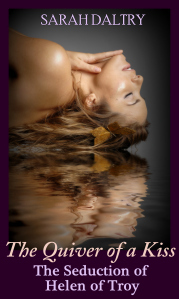 What inspired you to become an author? I love to write. I have always enjoyed telling stories and it is what I need to do to be happy. I don’t consider myself an author yet because it is a hobby and does not pay the bills. For me, I would like to be able to write for a living. That would mean that I was an author, not a hobbyist. I also think if I was selling more than a few works a day, I would feel more success from my writing.
What inspired you to become an author? I love to write. I have always enjoyed telling stories and it is what I need to do to be happy. I don’t consider myself an author yet because it is a hobby and does not pay the bills. For me, I would like to be able to write for a living. That would mean that I was an author, not a hobbyist. I also think if I was selling more than a few works a day, I would feel more success from my writing.
With the hype surrounding Fifty Shades of Grey, how do you think yours differ and stand out? I chose erotica because I feel as if there is this fear of sex in our society, but it is a stupid fear. It is irrational, as we promote excessive violence and we demonize sex. For me, there is some relief in knowing that there are writers and readers, both men and women, who are open to exploring sexuality in adult ways. I think erotica is a little more complex than pornography and also more of an art. I am not insulting porn, but I do think that erotica requires active participants, whether one individual or a couple, who have to imagine and take the story further for themselves. To be honest, I do not like Fifty Shades much. I think much of my work is more in that style or even smuttier, but The Quiver of a Kiss and the stuff I am working on now is an attempt to tell a good story while also being erotic. There are several writers doing it, but I hope that my topics and ideas are different enough to stand out.
How do you structure your day? I write during lulls at work and at night / on weekends. I feel like I should attempt to write 1000-2000 words per day. Some days I write 10,000. Others I write 10. Music helps to inspire me. Sometimes I read something and think about versions of it that are different. Or I watch TV or a movie. I get a lot of ideas as branches of other ideas. That sounds like plagiarism, I suppose, but my ideas are very different; for example, I will read something with a vampire and think, hmmm, maybe I should do something with vampires. Broad enough but I do think that helps. Another element is, to be honest, my own desire to write and passion for the topic or story. There are days when I am not feeling very erotic and it is challenging to write sex; other days, it is all I think about and the scenes come more naturally!
Do you plan your books? No. I start with a very basic idea and see where it takes me. I feel that characters should be independent of me and if I have to create them, they will not feel real. With Helen of Troy, she was mostly already written – at least factually. I used a new perspective on her life, though. I do not use people I know or people I am in contact with. I feel that it is unfair to them and also to the characters. I cannot write if I do not see the characters and I try to make them come from somewhere outside of my life.
How did you get into print? I use KDP and Smashwords. Many of my work started on KDP and is exclusive for now. By summer, I will be taking my entire library and moving it to Smashwords as well. I am finding that there are two reasons to use Smashwords: first, I see a decent number of sales there directly and based on my ratings on Barnes and Noble, I feel like I am selling a few there as well. The second reason is that Amazon’s refund policy is actually disadvantageous, especially for erotica. There seems to be a trend of people buying the stories, reading them, and returning them. This is not only insulting to authors, but it also makes me not want to be exclusive to Amazon because they are not helping me much. If my sales are almost the same at all three places, and the other two do not offer the same ridiculous refund even after completing a title, it hurts my chances of getting the work out there and making writing a full time job.
What made you decide to publish independently? I just don’t have time to query and wait for publishers. In erotica, I don’t think it is a genre that needs the traditional route as much, because most people are reading ebooks and are doing everything online anyway.
What is the future of publishing? I really do not know. I am so new to it all. I am disgusted by people on both sides. Traditionally published authors and traditional publishers seem to demean indie authors, but indie authors can be arrogant (some) and out of defensiveness or arrogance, they tend to feel anyone who finds a contract with a traditional publisher at some point is a sellout. I think every author needs to do what is best for him or her and the work.
How do you deal with rejection? Honestly? I cry and feel like giving up! I am a girl and I am moody as well as sensitive. But then I tell myself it is just reason to prove them wrong. I think of my idols and I know that no writer became successful by not writing. I cannot just give up or then I definitely will not succeed.
What’s your top tip for aspiring authors? Have faith.


May 24, 2013
The Mysteries of Secret UK Testing Facilities
 In The Moon Stealers and The Everlasting Night, human survivors find themselves in a UK Government facility in the North Downs of Kent, called Fort Halstead.
In The Moon Stealers and The Everlasting Night, human survivors find themselves in a UK Government facility in the North Downs of Kent, called Fort Halstead.
This is not a fictional location.
The facility has an interesting history that is shrouded in secrecy – the perfect place to locate part of my story in!
Fort Halstead, as well as the more infamous Porton Down, have been used as a Defence, Science and Technology Laboratory (Dstl) for the Ministry of Defence. Dstle is considered to be one of the UK’s most sensitive and secretive government departments for military research, including CBRN defence. CBRN stands for Chemical, Biological, Radiological and Nuclear Defence and has been linked to research and development into chemical weapons such as Chlorine, Phosgene and Mustard Gas. During the Second World War, research also included biological weapons including Anthrax and Botulinum Toxin. 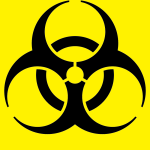 When the war ended, the allies were eager to capitalise on unknown nerve agents the Germans had been developing including Tabun, Sarin and Soman, which led to the development of the VX nerve gas at Porton Down in 1952. There have been persistent allegations of unethical human experimentation at Porton Down, but only one recorded death due to nerve gas experimentation. On a positive note, the UK Government produced a high efficacy anthrax vaccine that is used throughout the world. It is believed that Britain’s development of the atomic bomb was initially based at Fort Halstead.
When the war ended, the allies were eager to capitalise on unknown nerve agents the Germans had been developing including Tabun, Sarin and Soman, which led to the development of the VX nerve gas at Porton Down in 1952. There have been persistent allegations of unethical human experimentation at Porton Down, but only one recorded death due to nerve gas experimentation. On a positive note, the UK Government produced a high efficacy anthrax vaccine that is used throughout the world. It is believed that Britain’s development of the atomic bomb was initially based at Fort Halstead.
” It would be quite erroneous of me and misleading for me to say that we know everything that’s going on in Porton Down. It’s too big for us to know, and secondly, there are many things happening there that I’m not even certain Ministers are fully aware of, let alone Parliamentarians.” – Bruce George, Member of Parliament and Chairman of the Commons Defence Committee (August 20, 1999)


May 22, 2013
Author Interview – V S Nelson : Part 2
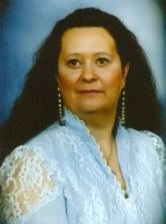 Within the Indie Author Hub, you can learn about other authors, their thoughts and opinions, what makes them tick and how their writing process works for them.
Within the Indie Author Hub, you can learn about other authors, their thoughts and opinions, what makes them tick and how their writing process works for them.
All this week I will be releasing segments of an interview I conducted with fellow author, V S Nelson, American author of Paranormal Romance fiction. Have a look at her profile and books here.
Part 2 : How Virginia Promotes herself
Who is your target audience and how do you promote yourself to them? I suppose my target audience for the series is adult lover’s of paranormal romance. I even placed an “adult content warning” at the front of each book in the series since they do have some sexual and graphic content. Since a lot of those readers I personally know (but not all) are over 40, I made the decision to release each book in regular and large print, trying to accommodate those with less than perfect eye sight.
How do you use Social Media? I use Facebook, Twitter, Google, authordb, Book trailers, Goodreads, my blog and visit other blogs. In an average day, I spend about 30 minutes in the morning, perhaps another 30-60 in the evening if I feel like getting on line.
What’s your most effective way to promote yourself? Meeting people in person. I recently returned from a book signing tour in CA. Aside from my website I also host a nice blog where I host other guests 5 days a week. The weekends are reserved for me, my characters and VERY special guests; those who are not your typical published (indie or traditional) authors. I’ve also used my Saturday slots for character interviews for my Guardians/heroes, best selling traditional authors many of which are now pulling their back list to self publish, and authors from other countries. Rather than post the same “old” interview on the weekend I try to post something special for my followers.
What made you self publish? I actually turned down both agent and publishing contracts to self pub. Wanted to try my hand at it since I tend to be a “control freak” and wanted a say in my cover, content and promotion. I think many publishers / editors / agents are now looking at successful indie publishers with a totally different eye. In fact many of them are going after them.
Without agents and traditional publishing houses controlling publication, how do you think the massive volume of books that are so easily released, can be vetted for quality and consistency? That is a difficult question considering we have no governing committee like other industries. I’ve had the privilege of reading some great books by indie authors … Sadly, I have also tried to read some that were filled with grammatical mistakes, misspelled words, that were without a doubt poorly written manuscripts. Many professional writing organizations like RWA have finally started to acknowledge indie authors but at the same time they are suggesting indie authors use the same criteria for self publishing that traditional authors use, like copy and line editors, professional cover artists, etc. Personally I employ both a copy editor and a line editor.
What is the future of publishing? Your guess is as good as mine. I think we will continue to see a decline in agents and major traditional print publishing houses while we will continue to see an increase in e-publishers.
Final words? STAY TRUE TO YOUR MUSE.
In Part 1, Virginia talked about her writing process and her Muse.


May 20, 2013
Author Interview – V S Nelson : Part 1
 Within the Indie Author Hub, you can learn about other authors, their thoughts and opinions, what makes them tick and how their writing process works for them.
Within the Indie Author Hub, you can learn about other authors, their thoughts and opinions, what makes them tick and how their writing process works for them.
All this week I will be releasing segments of an interview I conducted with fellow author, V S Nelson, American author of Paranormal Romance fiction. Have a look at her profile and books here.
Part 1 : Virginia’s Writing Muse
What is a typical day for you? I write full time, six hours a day, six days a week. I get up by 4, on computer composing rough drafts by 5, Edits and rewrites after late lunch. Evenings are reserved for meeting with Critique Partners, technical advisor and editors or you can find me at a local Romance Writers of America (RWA) or other writing organization meetings. I am also a chairperson for the Arizona Dreamin’ Readers convention, serve as a judge for several RWA chapters and several other writing contests. I’ve never been one to do anything half way – I look at my writing as I would any other career. When I instructed school I also served on various boards and committees, NOW it is my way of giving back to the writing community that helps support all of us. I have also noticed that every time I attend a physical-in person meeting, like a local RWA meeting, I am jazzed for at least a few days. This is reflected in my writing and daily word count. Guess it has something to do with being around all those inspirational and creative minds.
Do you Plan your books before writing? Nope, I’m one of those strange creatures whose Muse shows up in her dreams. I write what I am shown… Kind of like writing out a screen play for the movie you just watched. Gabriel (character from her current book) tends to lead the rest of the muses for the series – only makes sense since he is their leader and he was the first one to request (or demand) I write his story. Since them whose ever book I am working on tends to take over and show me what they want me to see. The hardest muse I have had to work with is the hero from my commercial fiction story, “Sins of a Man”, the story of a Mafia Hit Man. Needless to say he can be a little “scary” at times.
How do you get over the fear of a “blank page”? Have never really had one. If the Muse doesn’t show up one night I pull out a tape recording previously made, listen to it and write. I carry a small hand held tape recording device. I record scenes that I see when I am awaken from a dream or if I am awake day dreaming away from home so that I won’t loose any of the details if I choose to write it later. When Gabriel first started to unveil the Guardian’s story it was very complex and he “fired” things at me so fast I was afraid I would loose some of the valuable information. I still carry the recording device with me just in case.
How did you find your Muse? Gabriel is actually a man of few words but he does have an overwhelming presence. He actually approached me while I was still teaching in Egypt telling me, he had selected me to write the Guardian’s story. I really didn’t have time to mess with him at that time, nor did I think he made the right selection. I’m thankful, he is also a patient muse and waited until I retired. When he approached me again, I finally gave in to his request… thinking it would shut him up. Little did I know one book would turn into an eleven book series and by allowing him in, I also opened the door to several others. Telling the average person you hear voices in your head can lead to some very strange looks.
Do you have a special writing place? Don’t we all? My big L shaped desk has actually taken over half of my living room. Kids are all grown so there is no reason to be stuck in another room. I drink coffee all day long, usually until my dinner break. At night I switch to Diet Pepsi.
In Part 2, Virginia reveals her thoughts on the publishing industry.


May 18, 2013
Getting Kids into Print!
 On Monday 20th May I will be visiting Hawkinge Primary School in Kent and talking to 41 ten year olds about writing. Using my interactive ‘Story Generator’ model together with some trusty giant sponge dice, I will be working with the kids to create an exciting and structured story. Each child will also receive a pack of story cards to take home with them, a perfect tool to help remove the overwhelming fear of a blank page and propel them into their story.
On Monday 20th May I will be visiting Hawkinge Primary School in Kent and talking to 41 ten year olds about writing. Using my interactive ‘Story Generator’ model together with some trusty giant sponge dice, I will be working with the kids to create an exciting and structured story. Each child will also receive a pack of story cards to take home with them, a perfect tool to help remove the overwhelming fear of a blank page and propel them into their story.
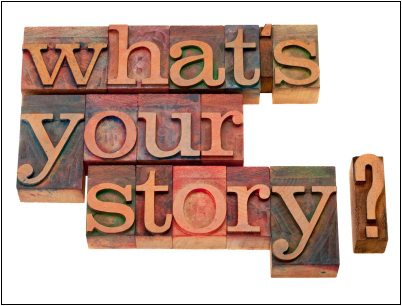 But, that’s only the beginning!!!!
But, that’s only the beginning!!!!
Each child will have the opportunity to have their story published on Amazon.
After the presentation, I will be working in conjunction with the school to run a writing competition. 10 lucky winners will have their stories published in Kindle and Paperback form on Amazon. All royalties benefit the school. Hopefully, the children will be inspired to become the next generation of writers.



